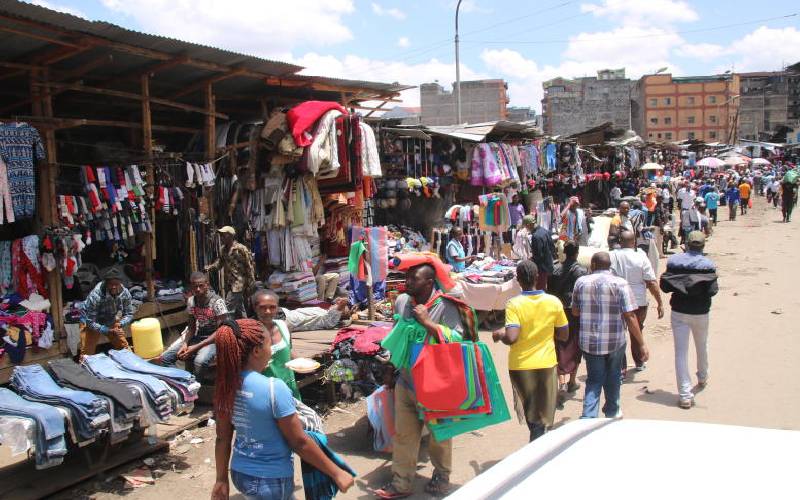×
The Standard e-Paper
Kenya’s Boldest Voice

Traders and hawkers at Gikomba Market continue with their daily business with few buyers due to the government’s directives against Covid-19. [David Gichuru, Standard]
With the economy badly dented by the lockdown, leaders across the political divide are now rallying President Uhuru Kenyatta to engage experts in the formulation of a comprehensive economic recovery strategy.